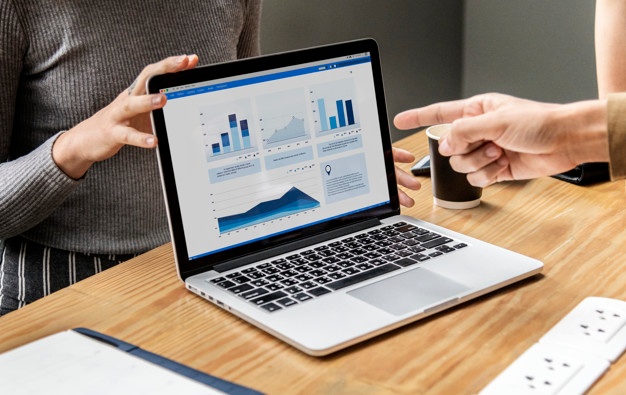Data has become an incredibly important part of all businesses. Data helps businesses understand and improve business processes so they can reduce wasted money and time. But many businesses don’t understand exactly how to work with data or don’t have the resources to manage data. It is especially true for businesses wanting to adopt machine learning or artificial intelligence models to enhance processes. This is where data labeling becomes very valuable.
Data labeling involves the manual curation of data by humans on technology such as AI and machine learning. Labeling data is necessary because computers have several limitations, and many of them cannot be easily solved without the need for human intervention.
Before we look into why hiring a data labeling specialist is important for businesses, let’s take an in-depth look at exactly what data labeling is.

Contents
What Is Data Labeling?
Most AI and practical machine learning models use supervised learning that applies algorithms to map one input to one output. To make supervised learning work successfully, you need a set of data that is labeled for the model to use to learn from and make correct decisions.
Typically, labeling data starts with humans making judgments about a given piece of unlabeled data. Let’s look at an example: Labelers may be asked to identify all images in a dataset where a house is visible. The process of identifying the object can be as simple as a ‘yes or no’ answer or as complex as identifying the exact pixels in the image associated with the house. The AI or machine learning model makes use of labels provided by humans to learn the underlying patterns. This process is called “model training.” The end result is a model that is trained to make predictions on new data.
Some common types of labeling data include:
Computer vision
When creating a computer vision system, images, pixels, or key points need to be labeled to generate a training dataset. Training data is the enriched data used to train a machine-learning algorithm or model. This training data can then be used to develop a computer vision model that can be used to categorize images, detect objects, and identify segments of an image automatically.
Audio processing
This involves converting all kinds of sounds and noises into a structured format so that it can be used in the process of machine learning. Audio processing most often needs text to be transcribed automatically. Then deeper information about the audio can be uncovered by adding tags and classifying the audio. The categorized audio clips become the training dataset.
Natural language processing
This process involves manually identifying important parts of text or tag the text with particular labels to create a training dataset. To do this, bounding boxes can be drawn around text and then transcribed the text manually in the training dataset. These processing models are most often used for entity name recognition and sentiment analysis.
The process of model training can be advanced and complex. Therefore, many businesses that want to invest in labeling data have to hire a specialist. This is where data labeling specialists come in. Even though the role is a fairly new one in the field of technology, the demand for these experts is already high.

What Skills Should a Good Data Labeling Specialist Have?
The specialist role is an expert position for individuals who are interested in working in the machine learning and artificial intelligence field. The role mostly involves labeling training data to feed machine learning and AI data labeling algorithms. For businesses that are interested in hiring a labeling specialist, there are certain skills to look out for to ensure the candidate can complete tasks successfully. These skills include:
- Being able to support Data Science teams with data collection and labeling activities
- Assisting with data capture and sorting activities
- Creating reports based on the labeling results.
- Comparing visual outputs and results
- Being able to label machine learning data from customers
- Knowledge of labeling interfaces to identify inconsistencies and labeling them
- Proficiency in machine learning techniques
- Being detail-oriented and organized
- Excellent communication skills, both verbal and written
It is also important to know some of the best practices for specialists, to ensure businesses hire the most suitable candidates. These include:
- Working with streamlined task interfaces to minimize cognitive load.
- Using labeler consensus to help prevent the error of individual annotators.
- Taking care of label auditing to confirm the accuracy of labels or to update them when necessary.
- Ensuring active learning to make data labeling more effective and efficient by using machine learning to recognise the most valuable data to be labeled.
Some businesses that require more complex tasks may need a specialist with more skills and experience, such as knowledge of deep learning algorithms, experience with labeling large datasets, familiarity with SQL and proficiency with working with Cloud applications.
How a Data Labeling Specialist Can Help Your Business
Businesses hire specialists that offer data labeling services not only to assist with data collection and labeling activities but also to gain several other benefits. A specialist can help businesses in the following ways:
Improving the accuracy of data
Specialists can help to increase the accuracy of data used to train machines and to run algorithms. The range of data sets used by specialists to train machine learning algorithms can learn different types of factors that can improve the model to utilize its database to give more suitable results.
Raising the quality of training data
When it comes to machine learning, no element is more important than quality training data provided by labeling specialists. They use techniques to help enhance the quality of training data interactively.
Enabling fast scaling
With an experienced specialist, businesses can have the elastic capacity to scale their workforce up or down, according to their business needs, without compromising data quality.
Enhanced data security
Specialists comply with standard regulatory requirements when it comes to working with data. Most of them have a documented data security approach for managing technology, and working with networks and workspaces.
Helping to get better results
Data labeling tools and services offered by specialists help to provide improved results so machine learning and its algorithms can use it.
When Do Businesses Know When It’s Time to Hire a Data Labeling Specialist?
When businesses’ most expensive resources like data scientists or engineers are spending a lot of time trying to manage data for data analysis or machine learning, it may be time to consider hiring a specialist in data labeling. This is also true if increases in data labeling volume become difficult to manage in-house.
The Cost of Hiring a Data Labeling Specialist
One of the most important aspects that businesses need to consider when looking to hire a data labelling specialist is the cost involved.
The salaries of these specialists vary according to their destination and level of expertise. Let’s take a look:
In the United States, a mid-level specialist has an average annual salary of $60,334, while a senior specialist has an average salary of $90,500.
A mid-level specialist in the United Kingdom has an average annual salary of $32,074.16, while a senior specialist has an average salary of $48,393.54.
In Germany, a mid-level data labeling specialist earns an average annual salary of $68,000. This can increase to $78,930 for senior specialists.
In some countries, such as those in Eastern Europe, the rate for data labeling specialists is drastically lower. The reason for this is mostly due to the affordable living costs in these countries. For example, a mid-level specialist working in the field of development in Ukraine earns an annual average salary of $9,387.37, while a senior specialist from a software company in Ukraine earns up to $14,417.93.
When businesses want to outsource a data labeling specialist, it is important to consider both the destination, as well as the experience and skill of the candidates. For example, a business can hire a highly skilled and experienced senior specialist from a Ukraine software company for a much lower cost than hiring a mid-level candidate from the United States or the United Kingdom.
The Final Word
When businesses have large amounts of data they want to use for deep learning or machine learning, they need the right people to enrich it so they can train, validate, and adjust their model. These businesses want to scale their data labeling operations because their volume is growing and they need to expand their capacity. If they’re doing data labeling in house, it can be very difficult and often also expensive to scale.
When businesses hire experienced specialists in labeling data, they can make strategic decisions, build high-quality datasets, and recover valuable time and money to focus on innovation.
